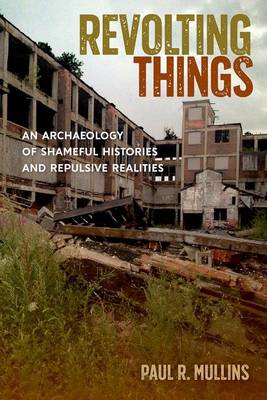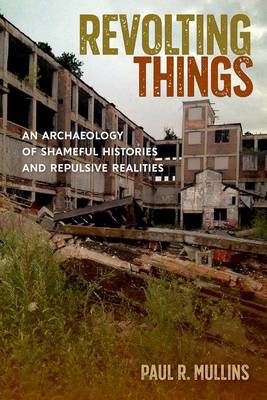
- Retrait gratuit dans votre magasin Club
- 7.000.000 titres dans notre catalogue
- Payer en toute sécurité
- Toujours un magasin près de chez vous
- Retrait gratuit dans votre magasin Club
- 7.000.0000 titres dans notre catalogue
- Payer en toute sécurité
- Toujours un magasin près de chez vous
Revolting Things
An Archaeology of Shameful Histories and Repulsive Realities
Paul R MullinsDescription
In this book, Paul Mullins examines a wide variety of material objects and landscapes that induce anxiety, provoke unpleasantness, or simply revolt us. Bringing archaeological insight to subjects that are not usually associated with the discipline, he looks at the way the material world shapes how we imagine, express, and negotiate difficult historical experiences.
Revolting Things delves into well-known examples of "dark heritage" ranging from Confederate monuments to the sites of racist violence. Mullins discusses the burials and gravesites of figures who committed abhorrent acts, locations that in many cases have been either effaced or dynamically politicized. The book also considers racial displacement in the wake of post-World War II urban renewal, as well as the uneasiness many contemporary Americans feel about the social and material sameness of suburbia.
Mullins shows that these places and things are often repressed in public memory and discourse because they reflect entrenched structural inequalities and injustices we are reluctant to acknowledge. Yet he argues that the richest conversations about the uncomfortable aspects of the past happen because these histories have tangible remains, exerting a persistent hold on our imagination. Mullins not only demonstrates the emotional power of material things but also exposes how these negative feelings reflect deep-seated anxieties about twenty-first-century society.
Spécifications
Parties prenantes
- Auteur(s) :
- Editeur:
Contenu
- Nombre de pages :
- 222
- Langue:
- Anglais
Caractéristiques
- EAN:
- 9780813066714
- Date de parution :
- 05-01-21
- Format:
- Livre relié
- Format numérique:
- Genaaid
- Dimensions :
- 152 mm x 229 mm
- Poids :
- 467 g

Les avis
Nous publions uniquement les avis qui respectent les conditions requises. Consultez nos conditions pour les avis.






